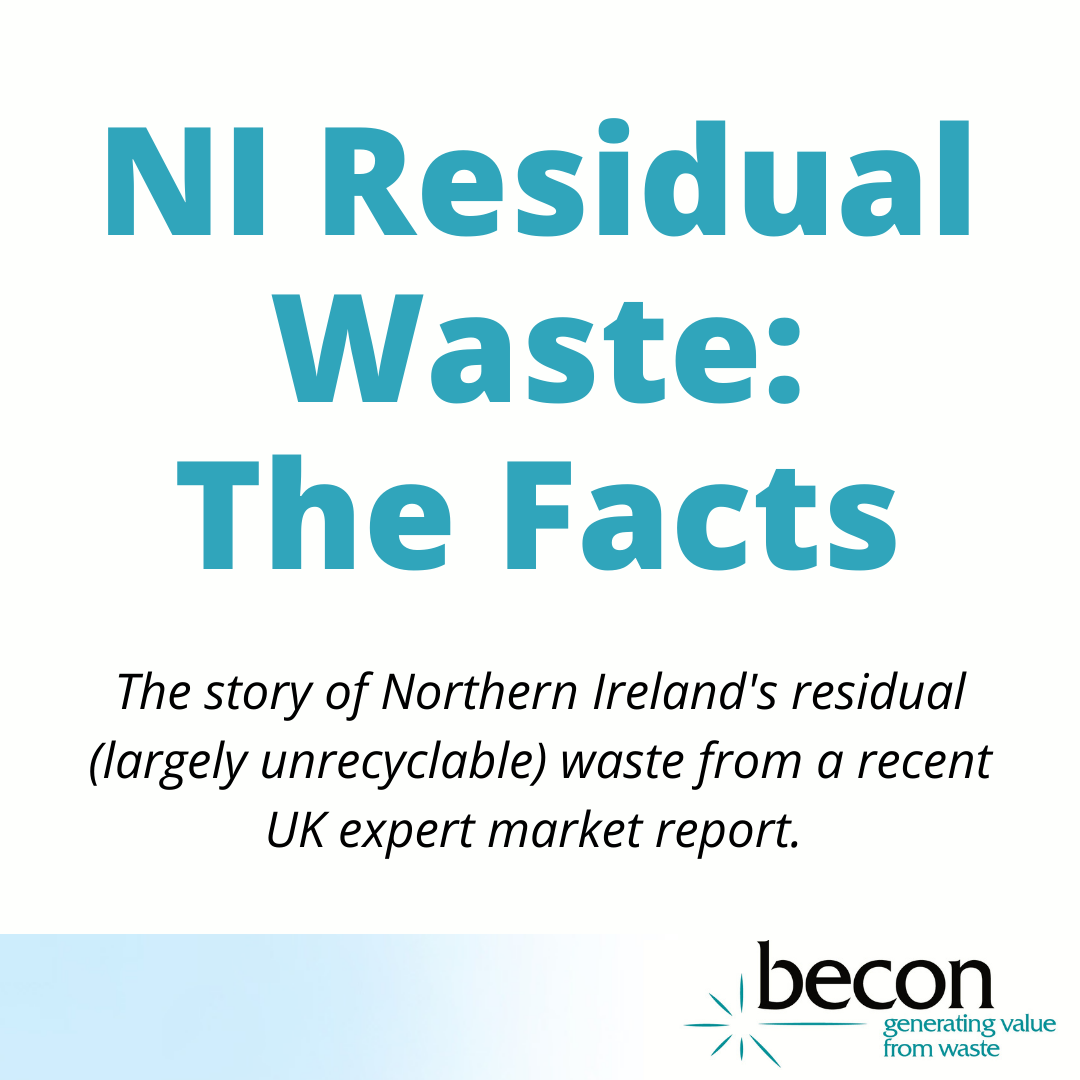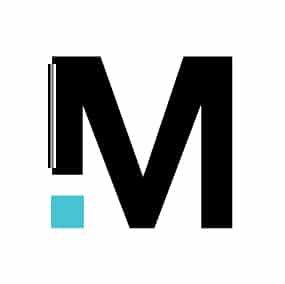Independent market report highlights significant waste treatment capacity gap even if arc21 facility is delivered and ambitious 65% recycling targets are achieved.
An updated market report by the UK’s leading independent waste and bioenergy sector advisors, Tolvik Consulting has confirmed that Northern Ireland needs the proposed arc21 residual waste treatment facility if it is to deliver the waste management strategy and meet Circular Economy targets which have recently been adopted into Northern Ireland law. Details of the report were shared today by Indaver, the lead company behind the £240m Becon project who also emphasised the pressing need for a fully integrated waste management system to cope with Northern Ireland’s growing waste and to avoid a future crisis in waste management.
Tolvik’s detailed analysis, using the latest local authority data for 2020 and which covers the lockdown period has categorically concluded that even if the arc21 project is delivered as planned there will still be a residual waste treatment capacity ‘gap’ in Northern Ireland of 124,000 tonnes in 2035. The projections of waste arisings consider projected household changes, anticipated recycling increases and both Brexit and covid implications. Importantly, they also considered the current capacity of all existing Energy from Waste (EfW) facilities including the Full Circle Generation plant in Belfast.
The report projects that by 2035 when Northern Ireland must achieve the ambitious Circular Economy Municipal Waste recycling target of 65% we will still produce over 500,000 tonnes of residual waste annually that cannot be recycled and will therefore require alternative treatment.
Currently much of the residual waste generated from households is either landfilled or exported at significant financial and environmental cost to fuel energy from waste plants abroad. In 2019/20 240,220 tonnes were sent to landfill and a further 235,783 tonnes exported for thermal treatment or disposal across GB, Europe and other parts of the world. These figures don’t factor in additional Commercial and Industrial (C&I) waste which also needs treated. Both current practices are considered unsustainable, inefficient and entirely incompatible with the circular economy and wider climate change targets.
The Tolvik analysis utilises the latest Department of Agriculture, Environment and Rural Affairs (DAERA) waste data available for the last full year 2019/20 and the first three quarters of 2020/21 during the covid-19 period. The latest two quarters of data show a clear increase in waste arisings (+9.2% in Q3 alone), alongside a decline in recycling levels (-1.6%) in the same quarter comparisons. Of greater concern is that the amount of waste going to landfill has increased by 3,195 tonnes compared to the same quarter in the previous year. Having considered the potential implications of Brexit and the Covid-19 pandemic, the report concluded that there will not be a systemic shift in short and long term Northern Ireland Municipal waste projections to 2035.
The report also highlights that the arc21 proposals will contribute significantly to increasing recycling levels in NI through the extraction of recyclable waste via the Mechanical and Biological Treatment (MBT) plant, one of the largest such facilities on the island of Ireland and through processing residues from the EfW facility.
Speaking about the report findings John Ahern, Indaver said;
“The analysis by Tolvik confirms the need for a step change in how we currently manage our waste if we are to avoid a waste crisis, meet the Circular Economy targets and move away from relying on landfilling and exporting our waste. This has major implications for NI’s ability to meet the wider net zero carbon targets by 2050, given the damaging impact of methane release from landfill.
“This step change will require local, strategic waste infrastructure such as the proposed arc21 project which will divert waste from landfill and negate the need to export huge volumes of our residual waste, only to fuel energy from waste plants abroad. It is critical that Northern Ireland develops a fully integrated waste management system here which brings all the existing waste management providers together in a joined-up way. It is only by working together and investing in the necessary infrastructure that Northern Ireland will be able to maximise recycling levels, manage the remaining non-recyclable waste in a sustainable way and implement the principles of proximity and self-sufficiency.
“This report confirms that we have more than enough local waste capacity for the £240m Becon project and that it is clearly a must do project for Northern Ireland. As one of Europe’s leading waste management companies we are keen to invest in Northern Ireland to deliver a sustainable and value for money solution to meet a clear public need in support of current government policy. The project will provide significant economic and environmental benefits, give local Councils much needed surety when it comes to their waste management costs at this uncertain time, and deliver a publicly owned asset for the longer term. The recent Ministerial Advisory Panel on Infrastructure highlighted the important role of such strategic infrastructure in supporting a “cleaner, greener recovery.” We would therefore urge the relevant Ministers to prioritise the long-awaited planning decision needed to progress these vital facilities.”
The Tolvik Consulting Market Analysis report has been submitted as part of a Further Environmental Information (FEI) Submission to the planning file designed to update the planning application and address various queries and objections raised since last year. The application has been in the planning system for over 7 years. In that time, it has been recommended for approval three times by different planning professionals including by an independent Planning Appeals Commission review. The updated report can also be found on http://becon.co.uk/admin/resources/appendix-2.1-northern-ireland-residual-waste-market-update.pdf



